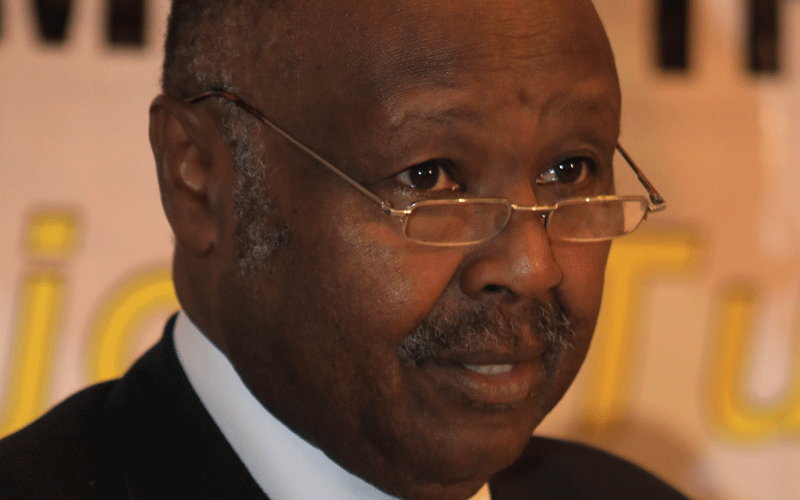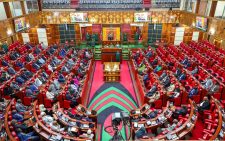Kenyans likely to be happier if BBI proposal sails through

As debate on the Building Bridges Initiative (BBI) rages, a proposal that has been drowned by the din on the political recommendations could make all Kenyans a happier lot– if it is implemented.
The proposal tucked somewhere in the 204-page document wants the development of robust legislation on mental health, to pave way for the establishment of a mental health and happiness commission and the development of a National Happiness Index that is expected to prioritise the mental health of Kenyans.
Dr Frank Njenga, the chair of the Mental Health Taskforce said the government would be required to measure the National Happiness Index (NHI), the same way it does the Gross Domestic Product (GDP).
The taskforce had made a similar recommendation in its report.
“If you noticed during this year’s speech, President Uhuru Kenyatta spoke a lot on mental health situation in Kenya.
The President will be announcing the NHI during the State of the Nation address every year,” said Njenga.
This proposal, however, has not been given a specific timeline in the BBI implementation matrix, raising questions on how the government intends to implement it, given its broad provisions.
But Njenga said the recommendation is simply an ‘aspiration’ which the government should aim to achieve, rather than something that can be implemented overnight.
The BBI report also wants the government to provide funding for mental health services at the national and county level and harmonisation of the Nacada Act, Alcoholic Drinks Control Act, Narcotic Drugs and Psychotropic Substance (Control) and the Tobacco Control Act and the need for county governments to develop and enforce policies that regulate the use of drugs and alcohol.
Njenga said the NHI envisioned in the BBI document is similar to the Gross Happiness Index coined by Kingdom of Bhutan’s fourth King Jigme Singye Wangchuck in 1972.
The index is based on the premise that sustainable development should take a holistic approach towards notions of progress, and gives equal importance to non-economic aspects, based on four pillars of good governance, sustainable economic development, cultural preservation and environmental conservation.
Bhutan, a tiny South Asian nation tucked between China and India, started measuring its success using the NHI in 2008 and here, this benchmark is considered more important than the GDP.
It is considered one of the happiest countries in the world and the crime rate is low. The poverty rates in the country stand at 12 per cent.
Investment in the happiness of its citizens seems to have started bearing fruit as its vital socio-economic indicators in health and education have significantly improved, even as its GDP per capita increases.
Cosmetic concept
Its life expectancy more than doubled from 32.4 years in 1960 to 70.2 years in 2017 with the maternal mortality ratio dropping nearly 90 per cent in four decades.
During the Covid-19 pandemic, Bhutan has only reported 438 cases and zero deaths, a factor experts have attributed to its people-centric policies.
Other nations that also seem to put much emphasis on the happiness of their citizen include Costa Rica.
News Zealand also seems to be following in the same footsteps and in 2018, the Prime Minister Jacinta Arden made a passionate speech before the United Nation and made a case for ‘kinder politics’ in which children thrive and success is measured not only by the nation’s GDP but by happinness of its citizens.
In May this year, Mexico President Lopex Orbrador announced that they would adopt a new index that would measure people’s happiness and well being as well as the economic growth.
Njenga said Kenya would benefit immensely by adopting this concept but it would require political goodwill for it to work.
“ Money doesn’t buy happiness. The GDP doesn’t monitor the happiness of the citizens.
The NHI measures the environment in which people live in, whether they live in a corruption-free environment, whether the government is responsive to the needs of its people by ensuring access to services and also the ease of doing business. This makes the government more accountable to its people,” he said.
However, an economist at the University of Nairobi Schools of Economics, Samuel Nyandemo thinks although the concept is a common international parameter, it may not work in countries such as Kenya.
He said happiness is a relative concept and it may be difficult to “weigh what makes a human being happy”
“It is a cosmetic concept, at least in developing countries because there are so many basic needs that governments need to provide for their people such as quality health care, clean water and sanitation. It’s nothing more than rhetoric,” he said.









